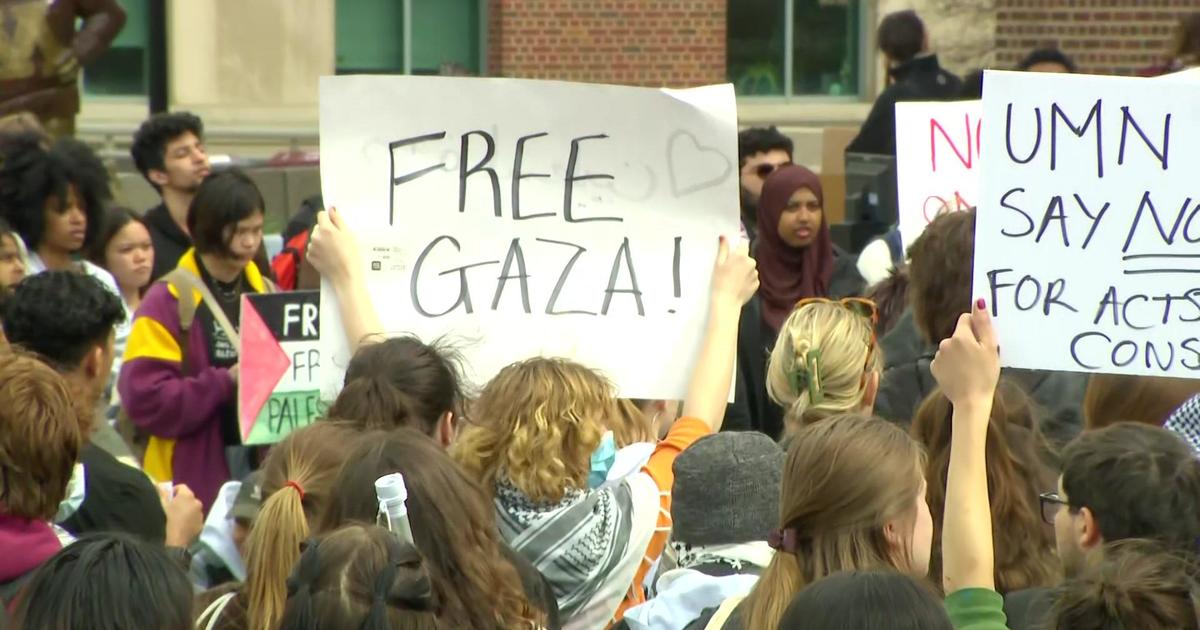Settlement In Case Over Newborn Blood Samples
MINNEAPOLIS (AP) —The Minnesota Department of Health has started destroying more than 1 million blood samples collected as part of its newborn screening program, following the settlement of a yearslong case over the state's practice of storing and using the samples without parental consent.
Per the settlement announced Monday, the state is also paying $975,000 in attorneys' fees for 21 families who claimed the Health Department acted illegally.
The Health Department said the newborn screening program will continue under new laws that limit the length of time blood samples and test results can be stored unless parents give written, informed consent.
"To me that's just logic," said Scott Kelly, an attorney for the plaintiffs. "Logic says if you want to do this stuff, all you have to do is ask."
As part of the program, a few drops of blood are taken from newborns in Minnesota hospitals and then analyzed for more than 50 disorders.
In 1997, the Health Department began keeping leftover blood samples in a depository and eventually collected more than 1 million residual samples. More than 50,000 samples and test results were used for research, including third-party research by drug companies and manufacturers, Kelly said.
"You have a governmental agency that had some DNA from our children and they were using it at their discretion, for whatever they wanted to," he said. "You can imagine what would happen if, by happenstance, it got to an employer or insurance company."
In 2009, a group of families sued, but the Health Department claimed it was not required to obtain written consent despite an earlier administrative ruling that said the department wasn't authorized to store or disseminate the data without permission.
The Minnesota Supreme Court found in 2011 the state acted improperly, and a settlement was recently reached.
Going forward, the state can hold blood samples that have negative test results for 71 days, while samples that have positive or abnormal results can be kept for two years. All test results will be held for two years and then destroyed, unless parents consent.
Jim Koppel, deputy commissioner for the health department, said Minnesota's newborn screening program is one of the best in the country. Since 1965, more than 5,000 infants in the state were found to have rare medical conditions and received early treatment that prevented serious complications or death. Koppel said for those saved, the tests are "true miracles."
Alan Bearder, a Twin Cities-area parent and one of the plaintiffs, said he grew concerned after the birth of his second child in 2008 when a hospital nurse drew his baby's blood over his objections.
"At that point, something didn't quite seem right. Nobody can tell us what this is for, how they are going to use it," he said. "When you don't have control over your most private health data — your DNA — it gets a little unnerving."
He said he was worried about the misuse of private health information and wanted his kids to be protected. He called the settlement a victory for parents, children and privacy advocates.
"I think it's great we are trying to find newborn health issues, but let's keep it at that," he said. "It's kind of like the Wild West. Just because we can do something doesn't mean we should."
(© Copyright 2014 The Associated Press. All Rights Reserved. This material may not be published, broadcast, rewritten or redistributed.)



